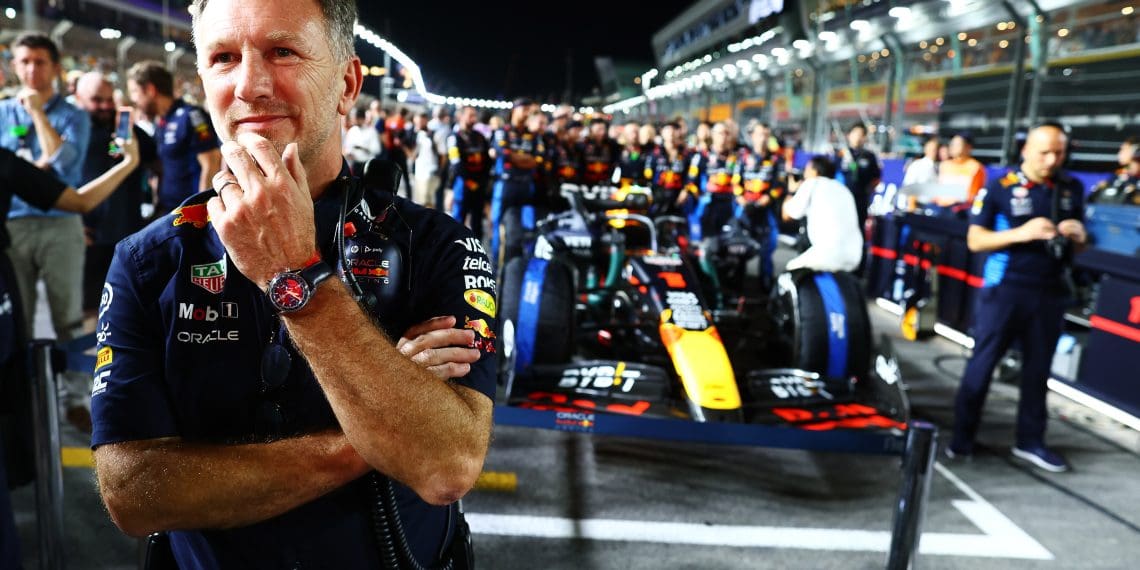Red Bull has turned to artificial intelligence (AI) in a bid to regain its competitive edge in Formula 1 after experiencing a performance slump that has seen the team lose its lead in the Constructors’ Championship. Team Principal Christian Horner has highlighted AI and machine learning (ML) as key tools in their efforts to enhance car performance and race strategies, particularly in light of recent struggles on the track.
Red Bull’s AI-Driven Approach to F1 Challenges
Red Bull’s recent dip in performance was evident at the Singapore Grand Prix, where Max Verstappen finished second but lacked the speed to challenge the race leader. With only six races left in the season, the team urgently needs to make improvements in areas such as speed to stay competitive. To address these challenges, Red Bull is leveraging AI technology to optimize car design and fine-tune race strategies.
“Artificial intelligence is a fascinating technology that Formula 1 is just beginning to explore,” Horner said. “Experimenting with AI allows us to discover innovative methods to enhance car performance.”
Horner emphasized the importance of AI in the modern F1 landscape, especially with the introduction of budget caps and development restrictions. The limitations on spending have forced teams to be more strategic in their approach, making the data-driven insights provided by AI and ML even more valuable.
Maximizing Performance Within Budget Constraints
The use of AI allows Red Bull to make more informed decisions about where to focus their development efforts. “The data from AI enables us to pinpoint improvements that will have the biggest impact on performance within the constraints we face,” Horner explained. This approach helps Red Bull allocate resources efficiently, ensuring that every upgrade counts under the budget cap.
Red Bull’s AI strategy involves analyzing vast amounts of data to identify areas of improvement that traditional methods might overlook. This includes enhancing car aerodynamics, refining setup choices, and optimizing race strategies, all aimed at regaining the speed that has waned in recent races.
A Strategic Response to Mid-Season Struggles
The Milton Keynes-based team’s decision to adopt AI comes as they face significant challenges, including mechanical issues with Verstappen’s car and the struggle to keep pace with front-running competitors. The team’s recent performances have fallen short of expectations, prompting a renewed focus on innovative solutions.
“We’re certainly exploring different strategies to boost our car’s speed,” Horner stated. “AI is one of those tools that can help us better prepare for races and address the challenges we’ve encountered this season.”
With the final six races of the season looming, Red Bull faces a critical period where significant improvements are essential to stay in the hunt for championship success. Horner’s emphasis on AI reflects a broader trend in F1, where teams are increasingly turning to advanced technologies to gain a competitive edge.
The Road Ahead: AI as a Game-Changer for Red Bull
As Red Bull continues to integrate AI into its operations, the team is hoping to turn the tide and reclaim its position at the top of the grid. While the impact of AI will take time to fully materialize, the technology offers a promising avenue for innovation in a sport where every millisecond counts.
Red Bull’s willingness to embrace cutting-edge technology could set a precedent for the rest of the grid, as teams seek new ways to navigate the complexities of modern F1 racing. If successful, Horner’s AI-driven approach could not only help Red Bull recover from its current slump but also redefine how teams approach car development and strategy in the years to come.










